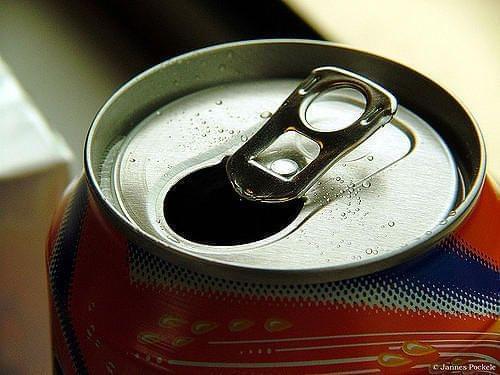Tax On Sugary Drinks Being Considered In Illinois

Illinois could become the first state with a tax on sugary drinks, including soda. Jannes Pockele / Flickr
Part of a potential compromise at the statehouse would make Illinois the first state with a tax on sugary drinks, like soda.
A Sugar-Sweetened Beverage Tax is proposed in Senate Bill 9, which is among new legislation that’s meant to end the budget stalemate and bring in more tax dollars.
Just a few cities in the U-S and Cook County have such a tax on the books. In past debates, opponents said a soda tax means a nanny state where the government tells people what’s bad for them.
But some studies show the taxes have brought down sugary drink consumption. That’s a big win for anti-obesity and public health advocates.
Jennifer Falbe , an author of a study on a tax in Berkeley,California, says the effect also has to do with how the revenue is spent:
“Two million dollars were raised by the tax, have been allocated by the local city government back into programs for promoting community health,” she said.
That may be one big distinction from the Illinois version. As the legislation stands, revenue from the penny per ounce tax would simply go to the state for general spending. Diet sodas and fruit juices would not be included, but sweetened drinks like lemonade would be.
One argument against says it’s a regressive tax because it disproportionately impacts the poor.
Falbe surveyed Berkeley residents after the city-wide soda tax went into place there in 20-15. She said her findings were consumption dropped 20-percent.
In Mexico, where a national soda tax was put in place, Falbe says drinking habits changed the most among the poor.
“Because those populations also tend to suffer from the health consequences of sugar-sweetened beverages like diabetes, they would also be the population that are expected to benefit the most,” she said.
Illinois has the 18th highest rate of obesity in the nation, at 30 percent. Governor Rauner declined to comment on the idea, saying he doesn't want to interrupt negotiations in the General Assembly.
Links
- State Senate Budget Compromise Put On Hold
- State Senators Say Democrats’ Support Of Leader Term Limits Is Show Of ‘Good Faith’ For Budget Plan
- Despite Pivot To Economy, Madigan Still Says Budget Is Top Issue
- New Legislature, Same Old Problem In Illinois: No Budget
- SB 9 (Sugar Sweetened Beverage Tax Act) at IL General Assembly website

